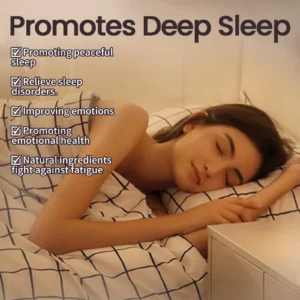Insomnia
Insomnia, the sleep thief that robs millions of people of restorative rest each night, is a pervasive and often debilitating condition. In this comprehensive exploration, we delve into the multifaceted nature of insomnia, unraveling its effects, causes, and potential remedies.
Understanding Insomnia
Insomnia is more than just difficulty falling asleep; it encompasses a range of sleep disturbances, including trouble staying asleep, waking up too early, and experiencing non-restorative sleep. While occasional sleepless nights are normal, persistent insomnia can have profound effects on physical, emotional, and cognitive health.
Effects of Insomnia
Physical Health
The physical toll of insomnia extends far beyond fatigue. Chronic sleep deprivation is associated with an increased risk of several health conditions, including:
– **Cardiovascular Disease:** Insomnia has been linked to hypertension, heart disease, and stroke.
– **Metabolic Disorders:** Sleep loss disrupts hormonal balance, contributing to weight gain, insulin resistance, and diabetes.
– **Immune Dysfunction:** Sleep deprivation weakens the immune system, making individuals more susceptible to infections and illnesses.
– **Chronic Pain:** Insomnia can exacerbate pain conditions such as fibromyalgia and arthritis, leading to decreased quality of life.
Mental Health
Insomnia is a common symptom of many psychiatric disorders, including anxiety, depression, and bipolar disorder. Conversely, chronic sleep deprivation can precipitate or worsen these conditions, leading to a vicious cycle of poor sleep and declining mental health.
Cognitive Function
Insomnia impairs these cognitive processes, leading to:
– **Memory Deficits:** Sleep-deprived individuals often experience difficulties with both short-term and long-term memory.
– **Impaired Attention and Concentration:** Insomnia can result in decreased focus, attentional lapses, and reduced productivity.
– **Slowed Reaction Times:** Sleep loss diminishes psychomotor performance, increasing the risk of accidents and errors.
Causes of Insomnia
Insomnia is a complex condition influenced by a myriad of factors, including:
Psychological Factors
– **Stress and Anxiety:** Worries about work, relationships, or health can keep the mind racing, making it difficult to relax and fall asleep.
– **Depression:** Insomnia is a common symptom of depression, and the two conditions often exacerbate each other.
– **Trauma:** Past traumas, such as physical or emotional abuse, can contribute to sleep disturbances and insomnia.
Lifestyle Factors
– **Poor Sleep Hygiene:** Irregular sleep schedules, excessive screen time before bed, and a disruptive sleep environment can all contribute to insomnia.
– **Substance Use:** Stimulants such as caffeine and nicotine, as well as alcohol and certain medications, can interfere with sleep.
– **Shift Work:** Disrupting the body’s natural circadian rhythms by working irregular or overnight shifts can lead to insomnia and other sleep disorders.
Medical Conditions
– **Chronic Pain:** Conditions such as arthritis, fibromyalgia, and migraines can make it difficult to fall asleep and stay asleep.
– **Respiratory Disorders:** Sleep apnea and other respiratory conditions can cause interruptions in breathing during sleep, leading to fragmented sleep and insomnia.
– **Neurological Disorders:** Conditions such as restless legs syndrome (RLS) and Parkinson’s disease can disrupt sleep architecture and contribute to insomnia.
Treatment and Management
While insomnia can be challenging to overcome, various treatment approaches can help individuals regain restful sleep and improve their overall well-being.
Cognitive-Behavioral Therapy for Insomnia (CBT-I)
CBT-I is the gold standard for treating insomnia and addresses maladaptive thoughts and behaviors related to sleep. Key components of CBT-I include:
– **Sleep Restriction:** Limiting time spent in bed to match actual sleep time, thereby increasing sleep efficiency.
– **Stimulus Control:** Establishing a strong association between the bed and sleep by limiting activities in bed to sleep and sex.
– **Cognitive Restructuring:** Identifying and challenging negative thoughts and beliefs about sleep.
Medications


Top On Sale Product Recommendations!
I-nsomnia Treatment Drops Deep Asleep Headache Neurasthenia Relief Promote Sleep Quality Decompression Sleep Aid Essential Oil
Original price: PKR 1766.51; Now price: PKR 1059.75
Click&Buy: https://s.click.aliexpress.com/e/_oEb2Fqs
Available Code : MJN24ZY8SQ5J, ( PKR270.05 ) off
medication are much below that are include:
– **Non-Benzodiazepine Hypnotics:** Drugs such as zolpidem (Ambien) and eszopiclone (Lunesta) can help initiate and maintain sleep.
– **Melatonin Agonists:** Melatonin receptor agonists like ramelteon (Rozerem) target the body’s natural sleep-wake cycle to promote sleep onset.
– **Antidepressants:** Certain antidepressants, particularly those with sedating properties such as trazodone, may be used off-label to treat i-nsomnia.
Lifestyle Modifications
These include:
– **Limiting Stimulants and Electronics:** Avoiding caffeine, nicotine, and screens (e.g., smartphones, tablets) before bed can promote better sleep.
Alternative Therapies
Several alternative therapies may complement traditional treatments for insomnia, including:
– **Yoga and Meditation:** Mind-body practices such as yoga and meditation can promote relaxation and reduce stress, making it easier to fall asleep.
– **Acupuncture:** Some studies suggest that acupuncture may improve sleep quality and reduce insomnia symptoms.
– **Herbal Supplements:** Certain herbs and supplements, such as valerian root, chamomile, and lavender, have calming properties and may help promote sleep.
Conclusion
Insomnia is a pervasive sleep disorder with far-reaching effects on physical, mental, and cognitive health. Understanding the causes and consequences of i-nsomnia is crucial for developing effective treatment and management strategies. Whether through cognitive-behavioral therapy, medication, lifestyle modifications, or alternative therapies, there are numerous avenues for individuals to reclaim restful sleep and improve their overall quality of life. If you or someone you know is struggling with i-nsomnia, seeking support from a healthcare professional can provide guidance and assistance on the journey toward better sleep.
Certainly! Let’s delve even deeper into the intricacies of i-nsomnia, exploring its various dimensions, from its impact on society to the latest research advancements in the field of sleep medicine.
Societal Impact of Insomnia
I-nsomnia doesn’t just affect individuals—it has far-reaching implications for society as a whole. Consider the following:
– **Economic Burden:** I-nsomnia related productivity losses, healthcare costs, and absenteeism result in significant economic burdens for employers and healthcare systems.
– **Traffic Accidents:** Sleep-deprived individuals are more likely to be involved in motor vehicle accidents, posing risks to both themselves and others on the road.
– **Mental Health Crisis:** The prevalence of insomnia contributes to the growing mental health crisis, with individuals experiencing heightened stress, anxiety, and depression as a result of chronic sleep deprivation.
Gender and Insomnia
Research suggests that insomnia may affect men and women differently:
– **Women:** Hormonal fluctuations during menstruation, pregnancy, and menopause can disrupt sleep patterns, making women more susceptible to i-nsomnia.
– **Men:** While men are less likely to report insomnia symptoms, they may experience sleep disturbances related to conditions such as sleep apnea and restless legs syndrome.
Insomnia in Different Age Groups
I-nsomnia can occur at any age, with distinct characteristics and challenges across different life stages:
– **Children and Adolescents:** Insomnia in younger populations is often linked to anxiety, academic pressure, and electronic device use before bedtime.
– **Adults:** Work-related stress, financial worries, and lifestyle factors such as shift work can contribute to insomnia in adults.
– **Elderly:** Aging-related changes in sleep architecture, as well as underlying health conditions and medication use, increase the risk of i-nsomnia among the elderly.
Cutting-edge Research in Sleep Medicine
Advancements in sleep research offer promising insights into the mechanisms underlying i-nsomnia and potential treatment avenues:
– **Genetics:** Studies have identified genetic variations associated with i-nsomnia, shedding light on the hereditary factors influencing sleep disorders.
– **Neurobiology:** Neuroimaging techniques have revealed alterations in brain structure and function in individuals with i-nsomnia, providing clues to the neural pathways involved in sleep regulation.
– **Chronobiology:** Research on circadian rhythms and the body’s internal clock has led to the development of chronotherapy approaches for i-nsomnia, such as timed light exposure and melatonin supplementation.
– **Digital Health Solutions:** Mobile apps and wearable devices equipped with sleep tracking technology offer personalized insights and interventions for managing i-nsomnia, empowering individuals to take control of their sleep habits.
Cultural Perspectives on Sleep and Insomnia
Cultural attitudes and practices surrounding sleep vary widely across different societies:
– **Western Societies:** In Western cultures, sleep is often viewed as a commodity, with societal pressures to prioritize productivity over rest.
– **Eastern Traditions:** Eastern philosophies such as yoga and meditation emphasize the importance of holistic well-being, including sleep, as integral to overall health.
– **Indigenous Communities:** Indigenous cultures often have unique sleep practices and rituals that reflect a deep connection to nature and traditional healing practices.
Addressing Health Disparities in Insomnia Treatment
Health disparities in access to care and treatment outcomes persist within the realm of sleep medicine:
– **Racial and Ethnic Disparities:** Minority populations may face barriers to accessing sleep healthcare services, leading to underdiagnosis and undertreatment of i-nsomnia.
– **Socioeconomic Factors:** Individuals from lower socioeconomic backgrounds may lack resources such as insurance coverage or transportation to seek treatment for i-nsomnia.
– **Geographic Disparities:** Rural communities may have limited access to sleep specialists and sleep clinics, exacerbating disparities in diagnosis and treatment.
Conclusion: Towards a Sleep-Positive Society
As our understanding of i-nsomnia continues to evolve, it is clear that addressing this pervasive sleep disorder requires a multifaceted approach. From integrating culturally sensitive care practices to harnessing the power of cutting-edge research and technology, we have the opportunity to transform our societies into ones that prioritize sleep as a fundamental pillar of health and well-being. By fostering awareness, advocacy, and innovation in the field of sleep medicine, we can pave the way toward a future where restful sleep is accessible to all, contributing to happier, healthier, and more resilient communities. Huskines
Hey Students!
Summer semester’s almost here! Get a head start and grab all your eTextbooks (over 15,000 titles in convenient PDF format!) at Cheapest Book Store. Save BIG on your studies with 20% off using code SUMMERVIBE24.
Still missing a book? No problem! Submit a request through our system and we’ll add it to our collection within 30 minutes. That’s right, you won’t be left scrambling for materials! ⏱️
Don’t wait – visit https://m.cheapestbookstore.com today and ace your summer semester!
Happy Learning!
Cheapest Book Store
Having read your posts. I believed you have given your readers valuable information. Feel free to visit my website Webemail24 and I hope you get additional insights about Data Mining as I did upon stumbling across your site.
Профессиональные курсы в школе вокала: Развитие вокального мастерства
пение для детей 3 лет http://top1-shkola-vocala.ru/ .
Цена за работу по монтажу сантехники в вашем районе
стоимость установки сантехники santehnik-spb-cena.ru .
Прочные зип пакеты с бегунком: Надежная упаковка для любых нужд
пакеты zip lock с бегунком https://www.zip-lock-pakety.ru .
Наркология в Самаре: Эффективные и анонимные методы лечения
платная наркоклиника https://narkolog-klinika-samara-1.ru/ .
Казино Чемпион: Ваш путь к успеху в мире азартных игр
Чемпион казино официальный сайт Чемпион казино официальный сайт .
Вывод из запоя в домашних условиях – Рекомендации врачей и уход за пациентом
Вывод из запоя https://vivodizzapoyaalmaty1.kz/ .
Лучшие методики вывода из запоя в вашем городе
Вывод из запоя в Алматы https://vivodizzapoya1.kz/ .
Ремонт иномарок с гарантией – Надежность и профессионализм
ремонт иномарок в автосервисе https://remont-inomarok-spb.ru/ .
Преимущества использования двигателя Cummins 6 ISBe в технике
двигатель 6isbe камаз https://cummins-6isbe-1.ru/ .
Лучшие методики вывода из запоя: Сравнение и выбор
Вывести из запоя https://www.vivodizzapoya.kz/ .
Экстренный вывод из запоя: помощь нарколога на дому и в клинике
Снять алкогольную интоксикацию на дому Снять алкогольную интоксикацию на дому .
Лечение алкоголизма в Алматы: Как выбрать наркологический центр
Наркологический диспансер Алматы https://www.vivodizzapoyanadomu.kz/ .
Как выбрать надежного партнера для грузоперевозок из Китая в Казахстан
перевозки из китая в казахстан https://perevozki-kitai-kazahstan.ru .
Роскошные элитные шубы: Натуральный мех, качество которого вы заслуживаете
бренд шуб https://www.shuby-premium.ru .